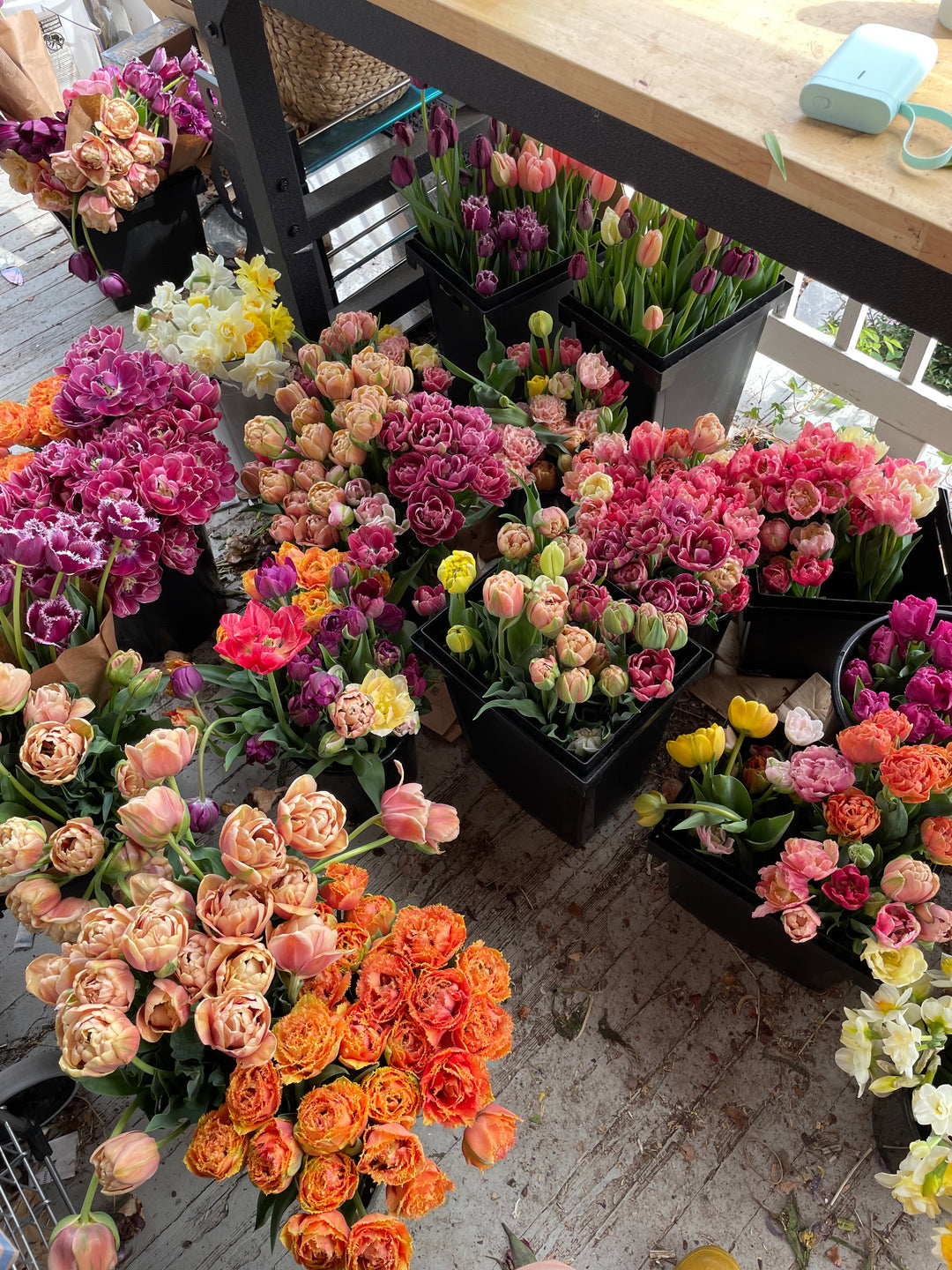Plant Sunflowers all Summer!

Plant Sunflowers?
Are you looking to brighten up your garden, attract birds and bees, and add a touch of beauty to your surroundings? Want to start a garden and overwhelmed? New construction? Where to start? Sunflowers! These vibrant and versatile plants are the perfect addition to any garden, and planting them all summer long can bring numerous benefits to both you and the environment. Find some dirt. Stick a seed in it. Pointy bit facing down. Give it a water and you will grow a sunflower. We plant sunflowers from May 1-August 15. You can never have too many!

Choosing the Right Seeds
When it comes to selecting sunflower seeds, make sure to choose varieties that are suitable for your specific climate. If you reside in zone 7, consider planting varieties like Vincent Choice, Procut White Light, or Procut White Night. These varieties are known for being great cut flowers and will thrive in your area.
Preparing the Soil
Before planting your sunflower seeds, it's essential to prepare the soil properly. Do nothing. I mean really. Sunflowers are the BEST for reclaiming crummy dirt. We love to use them in a new beds to help stabilize the soil.
Planting and Caring for Sunflowers
Planting sunflowers is easy and fun! Here's a simple step-by-step guide:
- Choose a sunny spot in your garden that receives at least 6-8 hours of direct sunlight each day.
- Prepare the soil by removing any weeds or rocks and loosen it up with a garden fork.
- Plant the sunflower seeds about 1-2 inches deep and 6-12 inches apart, see HHF tip below.
- Water the seeds immediately after planting and keep the soil moist but not waterlogged.
- Critters are the enemy of seeds. You know how the birds love those seeds in your bird feeder? We put a bit of chicken wire or frost cloth over seeds for the first couple weeks for protection.
- Monitor the soil moisture regularly and water as needed, especially during dry periods.
- Remove any physical protection when sunflower has sprouted and you see 4 leaves. Use deer repellent like Plantskydd if you have deer pressure.
- Enjoy the beauty of your sunflowers as they grow and bloom!
Companion Plants for Sunflowers
Sunflowers are excellent companion plants, as they attract birds and bees, which help with pollination and contribute to biodiversity in your garden. Consider planting sunflowers alongside other bee-friendly flowers such as lavender, cosmos, or zinnias. This combination will create a vibrant and buzzing ecosystem that will not only benefit your sunflowers but also your entire garden.
A Bouquet of Benefits
Planting sunflowers all summer not only adds beauty to your garden but also brings a host of other benefits. Sunflowers are regenerative plants that improve soil health, attract beneficial insects, and provide food and shelter for birds and other wildlife. Additionally, you can enjoy the rewards of your labor by creating stunning sunflower bouquets to brighten up your home or share with friends and family. Leave that last batch of fall sunflowers get left in the garden till spring and feed the birds in winter.
Conclusion
Planting sunflowers all summer is an easy and rewarding way to enhance your garden's beauty while contributing to the environment. By following these simple steps and selecting the right sunflower varieties, you can enjoy a summer filled with vibrant blooms, buzzing bees, and the delightful presence of birds. So, grab some seeds and PLANT!
HHF tip-Sunflower size can be manipulated based on variety and spacing. Our favorites are Procut, Sunrich and Vincent’s choice. The more space they have the bigger they get! Planted alone, up to 10 feet tall; Plant them two inches apart and you’ll get a teeny dollhouse sunflower. We like to vary spacing for size. Landscape sunflowers we are leaving in ground get at least a square foot of space. The Sunnys we grow for bouquets are spaced 4-6” Play with spacing and watch ‘em grow. Cheers!
HHF
